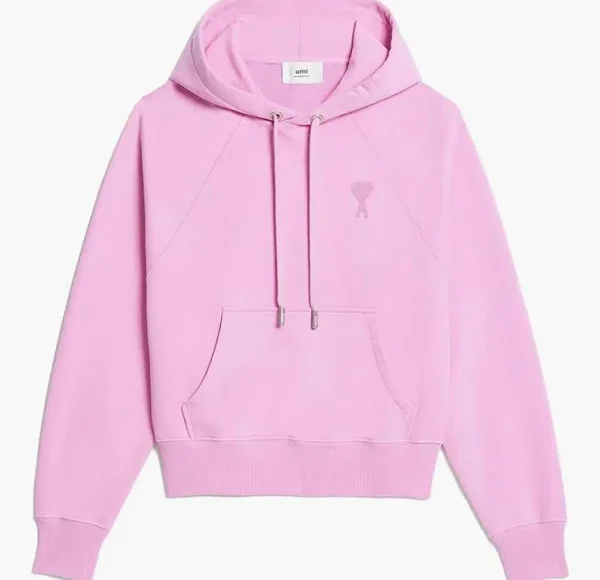In streetwear, authenticity is the holy grail. It’s the invisible thread that connects brands to culture, customers, and credibility. But what exactly defines authenticity? Is it the story, the people, the price tag, or something more elusive? Two brands that consistently spark debate on authenticity are Corteiz and Off-White. Both emerged from street culture, but took radically different paths to success. Corteiz champions raw accessibility through underground loyalty. Off-White embraces exclusive collaborations and global luxury prestige. This blog explores how each brand defines authenticity, and what it means to be “real” in the world of streetwear today.
Corteiz: Authenticity Through Accessibility
Corteiz built its reputation on being unapologetically accessible to the streets it represents. Founded in London by Clint419, the brand deliberately avoids flashy marketing and instead relies on word-of-mouth, surprise drops, and community engagement. This creates a feeling that Corteiz is by the people, for the people. You don’t need deep pockets or fashion credentials to wear Corteiz — you just need loyalty and presence. Its clothing feels like a uniform for those who live the culture, not just observe it. The drops happen at unexpected times and locations, making the shopping experience almost like a ritual. You earn your Corteiz gear. This creates a powerful bond between the brand and its followers — one based on trust, shared identity, and grassroots authenticity.
Off-White: Authenticity Through Exclusivity
Off-White, founded by the late Virgil Abloh, presents a different kind of authenticity — one that blends street culture with high fashion to create a new luxury language. Virgil’s background in architecture and design gave the brand a unique intellectual edge, and his ability to remix cultural symbols into wearable art earned Off-White a global audience. Exclusivity is baked into the Off-White DNA. Limited releases, collaborations with iconic brands like Nike and Louis Vuitton, and a presence in luxury fashion weeks make the brand highly sought after. Off White customers feel they’re part of an exclusive club that blends cultural savvy with aesthetic refinement.
The brand’s signature use of quotation marks, zip ties, and industrial motifs give it a distinct visual identity — one that screams authenticity through craftsmanship and concept rather than accessibility. For many, owning Off-White is proof of cultural literacy and refined taste. Authenticity here means being in the know and having access to the rare and the refined.
Accessibility vs Exclusivity: Two Sides of the Same Coin
While Corteiz and Off-White appear to be on opposite ends — accessible underground vs exclusive luxury — both leverage authenticity to connect deeply with their audiences. Corteiz proves authenticity through community and availability to those who truly live the culture. Off-White proves it through design innovation and cultural influence that redefines what luxury means. Both approaches have their risks and rewards. Corteiz’s street-level accessibility risks dilution if the brand grows too fast or loses its underground roots. Off-White’s exclusivity risks alienating everyday consumers and becoming a status symbol disconnected from street culture.
Cultural Impact: Local Roots vs Global Reach
Corteiz’s impact is intensely local and community-driven. The brand’s roots in West London are a source of pride and power. It reflects the city’s diversity, grit, and spirit. Fans don’t just buy Corteiz — they live it, champion it, and spread it. The brand’s success isn’t measured by global sales but by cultural influence within its sphere.
Off-White’s cultural impact spans continents. Virgil Abloh’s collaborations and leadership roles broke barriers for Black creatives in luxury fashion globally. The brand is a cultural ambassador that brought streetwear to elite fashion spaces without compromise. Its influence is felt not just in clothing but in art, music, and design worldwide.
While Corteiz builds respect through local loyalty, Off-White builds legacy through global influence. Both forms of impact are powerful, shaping how streetwear evolves across different audiences.
The Emotional Connection: Loyalty vs Aspiration
For Corteiz fans, buying and wearing the brand is a statement of loyalty and identity. It’s about being part of a tribe, a community, a movement. The emotional connection is raw and personal — rooted in shared struggles and triumphs. Corteiz feels like a badge of honor.
For Off-White fans, authenticity is aspirational. The emotional connection comes from owning something rare, something that signals sophistication and cultural awareness. Wearing Off-White feels like being part of a global creative conversation. It’s confidence, intellect, and style rolled into one.
Both brands connect deeply, but in fundamentally different emotional ways. Corteiz invites you in through shared experience. Off-White invites you in through status and design.
Which Brand Fits You?
Choosing between Corteiz and Off-White means deciding what authenticity means to you. Do you want your clothing to reflect your roots and your community? Or do you want it to express your cultural literacy and aesthetic sophistication?
Corteiz will always appeal to those who value rawness, realness, and rebellion. Off-White will attract those who value innovation, exclusivity, and intellectual style.
There’s no wrong choice — only a question of identity and intention.
Conclusion: Authenticity Is Personal
At its core, authenticity isn’t about price tags or logos. It’s about how a brand’s values align with your own. Corteiz and Off-White show us that authenticity can be many things — accessibility or exclusivity, underground or global, raw or refined.
Whether you wear Corteiz’s defiant uniforms or Off-White’s conceptual designs, you’re choosing a story that feels true to you. And in the world of streetwear, that’s the most authentic move of all.















Leave a comment